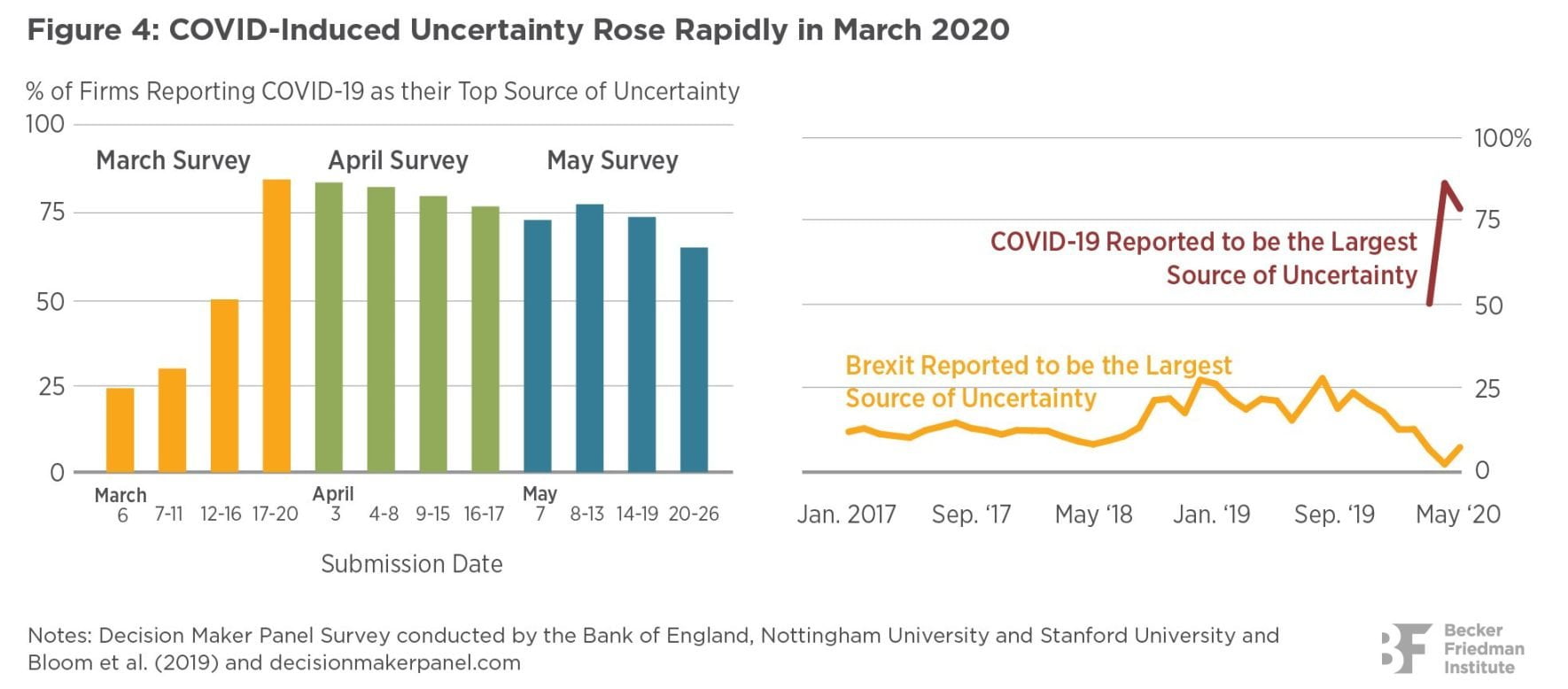European Car Market Slowdown: Economic Uncertainty Impacts Sales

Table of Contents
Economic Headwinds Fueling the European Car Market Slowdown
Several significant economic factors are contributing to the downturn in European car sales. The combination of these challenges creates a formidable obstacle for the automotive sector.
Inflation and Rising Interest Rates
High inflation across Europe is significantly impacting consumer spending. The rising cost of living leaves less disposable income for big-ticket purchases like new cars. Simultaneously, increased interest rates make car financing more expensive, further reducing affordability. For example, the Eurozone experienced inflation rates exceeding 10% in 2022, impacting purchasing power considerably.
- Germany: High inflation led to a noticeable decrease in new car registrations in Q3 2022.
- France: Increased interest rates have made car loans significantly more expensive, impacting affordability.
- Italy: A combination of inflation and economic uncertainty has reduced consumer confidence in large purchases.
Energy Crisis and Supply Chain Disruptions
The ongoing energy crisis in Europe has had a devastating impact on car manufacturing. Increased energy costs have driven up production expenses, while supply chain disruptions continue to delay vehicle deliveries and increase prices. The war in Ukraine further exacerbated these issues, disrupting the supply of crucial components.
- Microchip shortage: A persistent global shortage of microchips continues to hinder car production.
- Raw material scarcity: The disruption of supply chains has led to shortages of various raw materials.
- Logistics bottlenecks: Increased transportation costs and port congestion have added to the delays.
Geopolitical Instability and its Ripple Effect
The war in Ukraine and other geopolitical uncertainties have significantly impacted consumer confidence. The uncertainty surrounding future economic prospects makes consumers hesitant to make large purchases like new cars. This lack of confidence directly translates to lower demand and sales figures.
- War in Ukraine: The conflict has disrupted supply chains and increased energy prices.
- Brexit: The ongoing consequences of Brexit continue to impact trade and economic relations within Europe.
- Global trade tensions: Rising trade protectionism creates uncertainty and hinders economic growth.
Shifting Consumer Preferences in a Slowing European Car Market
The slowdown isn't solely driven by economic factors; consumer behavior is also shifting significantly. Affordability concerns and changing priorities are reshaping the European car market.
Increased Demand for Used Cars
The rise in inflation and interest rates has led to a surge in demand for used cars. Consumers are opting for more affordable pre-owned vehicles as an alternative to purchasing new ones. This shift is impacting new car sales significantly, creating a more competitive used car market.
- Online used car marketplaces: The growth of online platforms has made it easier to find and purchase used cars.
- Increased vehicle lifespan: Technological advancements have led to longer-lasting vehicles.
- Affordability: The significantly lower cost of used cars makes them attractive to price-conscious buyers.
Growing Interest in Electric Vehicles (EVs) – A Mixed Bag
Despite the economic slowdown, the adoption of electric vehicles (EVs) in Europe continues, albeit at a slower pace than initially projected. The high upfront cost of EVs and the limited availability of charging infrastructure remain significant barriers to wider adoption. However, government incentives and environmental concerns continue to drive some demand.
- Government subsidies: Several European governments are offering financial incentives to encourage EV adoption.
- Charging infrastructure development: Investment in charging infrastructure is gradually improving, though it remains insufficient in many areas.
- Range anxiety: Concerns about the limited range of EVs continue to deter some potential buyers.
The Rise of Car Sharing and Subscription Services
The traditional model of car ownership is being challenged by the growing popularity of car-sharing and subscription services. These alternative mobility solutions offer flexibility and affordability, particularly appealing to younger generations and urban dwellers.
- Convenience: Car-sharing services offer easy access to vehicles without the responsibilities of ownership.
- Cost-effectiveness: Subscription services can be more cost-effective than owning a car, especially for infrequent users.
- Environmental impact: Car sharing and subscription services can help reduce the overall number of cars on the road.
Outlook for the European Car Market and Potential Recovery Strategies
The future of the European car market depends on several factors, including government intervention, industry adaptations, and evolving consumer behavior.
Government Intervention and Policy Implications
Governments across Europe may need to intervene to stimulate the market. This could include financial incentives for new car purchases, tax breaks for manufacturers, or increased investment in charging infrastructure for EVs. However, the effectiveness of such measures will depend on their design and implementation.
- Tax incentives for EV purchases: Reducing taxes on EVs could increase their affordability.
- Subsidies for car manufacturers: Government support could help companies invest in research and development.
- Investment in charging infrastructure: Expanding the charging network is vital for EV adoption.
Industry Adaptations and Innovation
Car manufacturers need to adapt to the changing market conditions. Strategies such as streamlining production, reducing costs, enhancing efficiency, and investing in innovation will be crucial for survival and growth. This includes focusing on cost-effective models, exploring new business models, and embracing technological advancements.
- Development of more affordable EVs: Making electric vehicles more accessible to a wider range of consumers is crucial.
- Focus on fuel efficiency: Improving fuel economy can help reduce the impact of rising energy prices.
- Investment in autonomous driving technology: This could potentially increase the appeal of cars in the long term.
Long-Term Predictions and Scenarios for the European Car Market
Predicting the future of the European car market is challenging, given the complex interplay of economic, political, and technological factors. However, a gradual recovery is likely, driven by economic stabilization, technological advancements, and evolving consumer preferences. Different scenarios are possible, depending on the speed of economic recovery, the success of government interventions, and the adoption rate of new technologies.
Conclusion: Navigating the European Car Market Slowdown
The European car market slowdown is a complex issue with multiple contributing factors. Economic uncertainty, shifting consumer preferences, and geopolitical instability have created significant challenges for the industry. However, potential recovery strategies, including government intervention, industry adaptations, and technological advancements, offer a path toward recovery. Staying informed about the latest trends and developments is crucial for navigating this challenging period. Stay informed about the latest trends affecting the European car market slowdown by subscribing to our newsletter!

Featured Posts
-
 Bon Plan Samsung Galaxy S25 512 Go 5 Etoiles A 929 99 E
May 28, 2025
Bon Plan Samsung Galaxy S25 512 Go 5 Etoiles A 929 99 E
May 28, 2025 -
 Federal Investigation Millions Stolen Via Executive Office365 Compromise
May 28, 2025
Federal Investigation Millions Stolen Via Executive Office365 Compromise
May 28, 2025 -
 Blake Livelys Legal Issues Hugh Jackmans Unexpected Connection Sparks Controversy
May 28, 2025
Blake Livelys Legal Issues Hugh Jackmans Unexpected Connection Sparks Controversy
May 28, 2025 -
 Local Teen Missing Bryan County Sheriffs Office Needs Your Help
May 28, 2025
Local Teen Missing Bryan County Sheriffs Office Needs Your Help
May 28, 2025 -
 Diamondbacks Fall To Cardinals In Series Sweep Winns Key Homer
May 28, 2025
Diamondbacks Fall To Cardinals In Series Sweep Winns Key Homer
May 28, 2025
Latest Posts
-
 Will Trump Impose New Sanctions On Russia His Stance Explained
May 30, 2025
Will Trump Impose New Sanctions On Russia His Stance Explained
May 30, 2025 -
 Deborra Lee Furness On Her Marriage Breakdown With Hugh Jackman Gratitude And Moving On
May 30, 2025
Deborra Lee Furness On Her Marriage Breakdown With Hugh Jackman Gratitude And Moving On
May 30, 2025 -
 Pete Muntean On Cnn A Pilots Perspective On Air Traffic Control Blackouts
May 30, 2025
Pete Muntean On Cnn A Pilots Perspective On Air Traffic Control Blackouts
May 30, 2025 -
 Mastering Dwi Defense The Edward Burke Jr Approach In The Hamptons
May 30, 2025
Mastering Dwi Defense The Edward Burke Jr Approach In The Hamptons
May 30, 2025 -
 New Hhs Directive On Transgender Healthcare Raises Ethical Questions
May 30, 2025
New Hhs Directive On Transgender Healthcare Raises Ethical Questions
May 30, 2025
